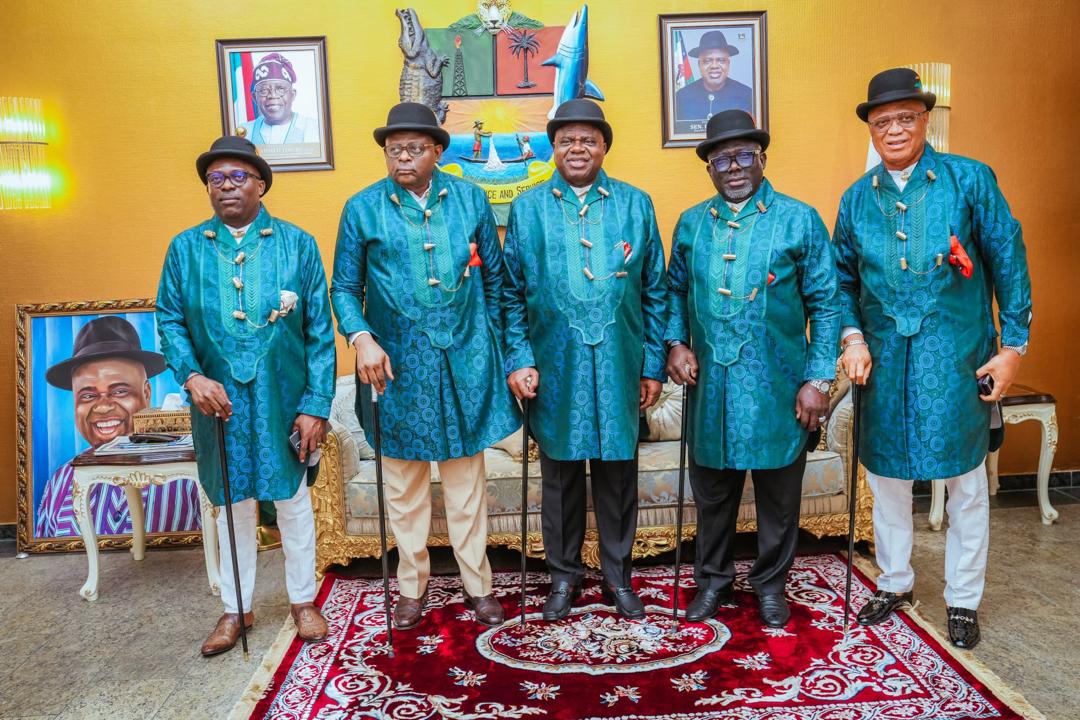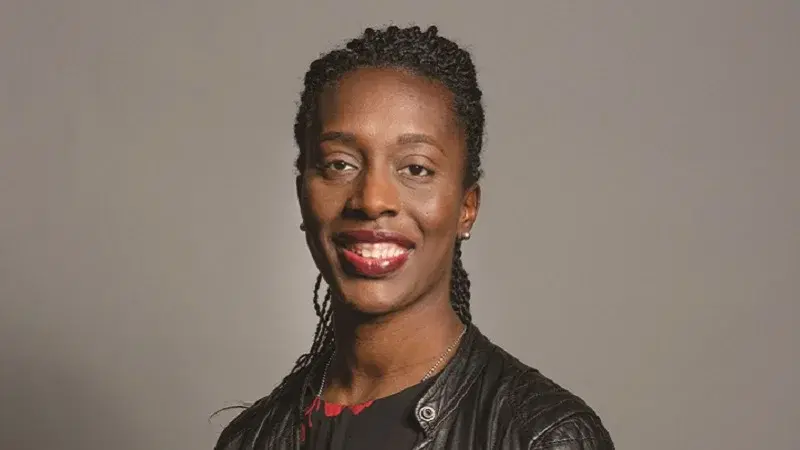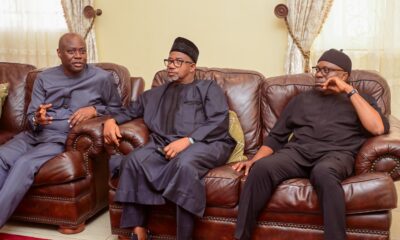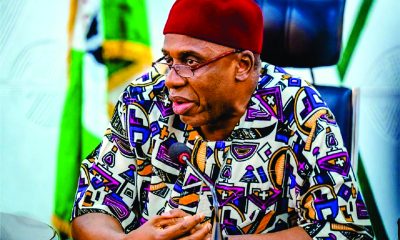News
FG Sets UP Committee On Financial Autonomy In Varsities, Others

An eight-man committee has been inaugurated by the Minister of Education, Professor Tahir Mamman, to set up a roadmap for the education sector in line with the ‘Renewed Hope’ agenda of President Bola Tinubu.
The committee, headed by Dr. Nuhu Yakubu, has as one of its members a former Deputy Director-General of the Nigerian Law School, Prof. Ernest Ojukwu, and Professor Sa’ad Umar.
While inaugurating the committee, yesterday, the minister said, “Mr. President has clearly laid out his vision for his administration and it is anchored on improving the lives of Nigerians in a manner that not just reflects our humanity but encourages compassion towards one another, and duly rewards our collective efforts to resolve the social ills that seek to divide us.
“On education specifically, our president has declared his commitment and as a priority, among other missions, to see that about 10.5 million Nigeria’s out-of-school children are retrained with skills that will make them stand on their own. We will, therefore, need a clear road map and framework that will guide the ministry to achieve these goals.
“To achieve this vision, we must necessarily harness our human resources. But before we can harness our human resources, we need to be sure of what we need to do to fill in the gaps that have, over the years, inexplicably pulled us back.”
Addressing the committee members on the task ahead, Mamman said, “Permit me to highlight some of the issues you may need to look at, amongst all others. As Nigeria looks towards having quality education, it is important that the curriculum, from basic to tertiary level meets the demands of our times and needs of the society.
“I am happy to note that work has commenced at some level, especially the secondary and tertiary levels. What we need to know is to what extent can what we already have meet contemporary demands of education globally and if it is not sufficient, how to address them.
“Of course, I do not need to emphasise the infrastructural deficit which the Universal Basic Education Commission and Tertiary Education Trust fund as well as good-minded Nigerians, philanthropists and our development partners have been supporting. Again, we ask ourselves to what extent has such gone in putting the country where it needs to be?
“I do expect that issues of financial autonomy in tertiary institutions, access and equity, research and innovation as well as the government-industry-academic nexus would occupy your thoughts. In the same vein, the global competitiveness of our educational system should not escape your scrutiny.
“Ladies and gentlemen, let me not pre-empt your thoughts as the other details of your Terms of Reference, attached to your letter of appointment, will provide further details. I must add that the Terms of Reference are not sacrosanct, as you are free to explore other areas not explicitly covered but required for a comprehensive assignment.
“One thing I must not fail to add is that we must have an education system that embraces technology and moves into a digital future where our education responds to the demands of society. We need to move away from education for its sake to education for the development, not only of the individual but most importantly, of the society we live.
“I do appreciate that the time frame of four weeks might look too tight but I am counting on your expertise, the availability of preliminary work done by the ministry in the review of the just concluded strategic plan, your commitment and patriotic zeal.”
News
Let’s Approach Regional Development Issues Differently – Fubara …As S’South Govs Host Fubara To 50th Birthday Celebration

Rivers State Governor, Sir Siminalayi Fubara, has sued for a change in the current approach adopted by South South Governors in their pursuit to achieve holistic regional development and economic prosperity.
The governor insisted on de-emphasis in vested individuals’ political interests while looking at the bigger picture of achieving enduring regional integration that will strengthen unity of purpose to change the trajectory of development in the region.
Fubara made the appeal during the meeting of Governors of South-South States, under the auspices of BRACED Commission, at the Bayelsa State Government House in Yanagoa on Tuesday.
This was contained in a statement by the Chief Press Secretary to the Governor, Nelson Chukwudi.
BRACED is an acronym for Bayelsa, Rivers, Akwa Ibom, Cross River, Edo and Delta.
He said: “I want to appeal that if we have to succeed in this drive, we need to keep our political differences aside and understand that the struggle, as at today, is for posterity, for the development of our region.
“It is really sad that in Niger Delta that is the economic base of this country, the construction of a road that you tagged ‘East-West Road’ could be an issue, that we need to beg, protest, and complain to get it fixed. I don’t think it is proper.”
Governor Fubara stated that it is not that the federal authorities do not understand that Niger Delta needs the road but quickly added that they have seen that even the people of the region do not take themselves seriously.
The governor said the moment Niger Delta people stopped playing to the gallery, and place value on themselves, outsiders will have no option than to accord the region and its people due regard.
Fubara said: “On my part, I want to say this: This is not the first time we are meeting. For me, I followed the course of the region meeting in a forum that we tagged “BRACED Commission.”
“BRACED Commission is also one of the bodies that was constituted at that time to support and work out development strategies for this region. But what I am seeing today is just limiting this meeting to only BRACED COMMISSION.
“We need to widen the scope where other leaders of the region should be part of the discussion of the development of the region, and I think this is the direction that will help the region.”
Reading the Communique of the meeting, the new Chairman of the Forum of Governors of South-South States, and Governor of Bayelsa State, Senator Douye Diri, said they support the Federal Government Tax Reform Bills, and urged President Bola Tinubu to extend the Value Added Tax (VAT) sharing percentages to oil and gas derivation.
He stated the Forum’s request to the Federal Government to urge relevant stakeholders and agencies to extend remediation of polluted environment ongoing in Ogoni land to other impacted communities and States in the region.
Governor Diri also said that the Forum resolved to establish a structural regional security network to enhance safety and security, foster stable Niger Delta region conducive for economic growth and prosperity.
Highlight of the event was the hosting of Governor Fubara to a surprise 50th Birthday celebration by the Governors of South-South States at the Government House in Yenagoa.
News
Fubara Lauds Tinubu For Setting Up Education Load Fund … Vows To Ensure Rivers Benefit Maximally From Scheme

The Rivers State Government has applauded President Ahmed Bola Tinubu for conceiving the idea of setting up the Nigeria Education Loan Fund (NELFUND) which has opened up opportunities for youths to acquire tertiary education irrespective of their financial status.
Rivers State Governor, Sir Siminalayi Fubara, gave the commendation while playing host to a delegation from NELFUND who came on an advocacy visit to the Government House in Port Harcourt on Tuesday.
Represented by his deputy, Prof. Ngozi Nma Odu, Governor Fubara said in developed countries it is common for people to go through school with loans which they sometimes pay all throughout their lives, noting that “for us, it is more accessible and more friendly because you would be required to pay back the loan two years after your National Youth Service.
“It is a win-win situation; it is a situation where the youths in Nigeria should not say because my parents are poor or passed away I cannot improve on my educational growth. This offers them a golden opportunity and I am glad you came for this advocacy.”
The governor urged NELFUND to intensify its advocacy to let the people know how they can benefit from it, adding that it is more important when talking about vocational institutions.
“If you look at the developed countries it is people that went to the vocational schools that make so much money, because it is pricey to get somebody to do anything, we need to instil this into our people, our youths, because people sometimes tend to look down on people that went to vocational schools, it should not be,” he said.
Fubara expressed delight with the NELFUND programme and assured that the State Government would do whatever it can to ensure Rivers State benefits maximally from the scheme.
In his remarks, the Managing Director and Chief Executive of NELFUND, Dr. Akintunde Sawyer, informed the governor that they were in Rivers State to seek the support of the State Government towards the loan, stressing that President Tinubu has directed them to ensure no Nigerian student who has the ability and desire to get educated at tertiary level is denied the opportunity due to lack of funding.
He explained that the scheme provides interest-free loans to students who apply, adding that these loans are not repayable until two years after their Youth Service when they must have gotten a job.
News
UK Appoints British-Nigerian As Trade Envoy To Nigeria

A British-Nigerian politician, Florence Eshalomi, has been appointed as the United Kingdom’s trade envoy to Nigeria.
Her appointment makes Eshalomi the second Nigerian to hold the position.
Confirming her appointment on X on Tuesday, she wrote: “It is an honour to have been appointed as the United Kingdom’s Trade Envoy to Nigeria.
“I’m looking forward to building on my close ties with Nigeria to promote a strong and flourishing economic relationship between our two great nations.
“I am looking forward to strengthening the UK’s relationship with Nigeria to explore shared growth and opportunities for both countries.”
Announcing the appointment in a statement on Tuesday, Jonathan Reynolds, the UK’s Business and Trade Secretary, said the decision was aimed at attracting investment into the UK and boosting economic growth.
“I’ve launched a new team of trade envoys who will use their experience, expertise, and knowledge to unlock new markets around the world for British businesses, attract investment into the UK, and ultimately drive economic growth,” Reynolds said.
Eshalomi, 44, is an MP representing the Vauxhall and Camberwell Green constituency.
She holds a Bachelor of Arts (Hons) in Political and International Studies with Law from Middlesex University.
-

 Niger Delta3 days ago
Niger Delta3 days agoNEITI Eyes Energy Sufficiency Through PH, Warri Refineries
-

 Politics12 hours ago
Politics12 hours agoPDP Governors’ Forum Pays Condolence Visit To Makinde …Over Demise Of Elder Brother
-
Business3 days ago
Diri Pushes For Africa’s Sub-nationals’ Partnership On Economy … As Bayelsa, Angolan Province Synergizes On Fisheries, Agric
-

 Politics15 hours ago
Politics15 hours agoHow I Would’ve Handled Subsidy Removal As President – Amaechi
-
Nation11 hours ago
NGO Honours Individuals, Groups For Outstanding Contributions To Humanity
-
Niger Delta3 days ago
Edo Governorship Election: Tribunal Relocates To Abuja
-
Politics14 hours ago
Stop Lying About Your Wealth, Odinkalu Knocks Buhari
-
Business10 hours ago
CBN Releases FX Code To Mitigate Financial Risks

